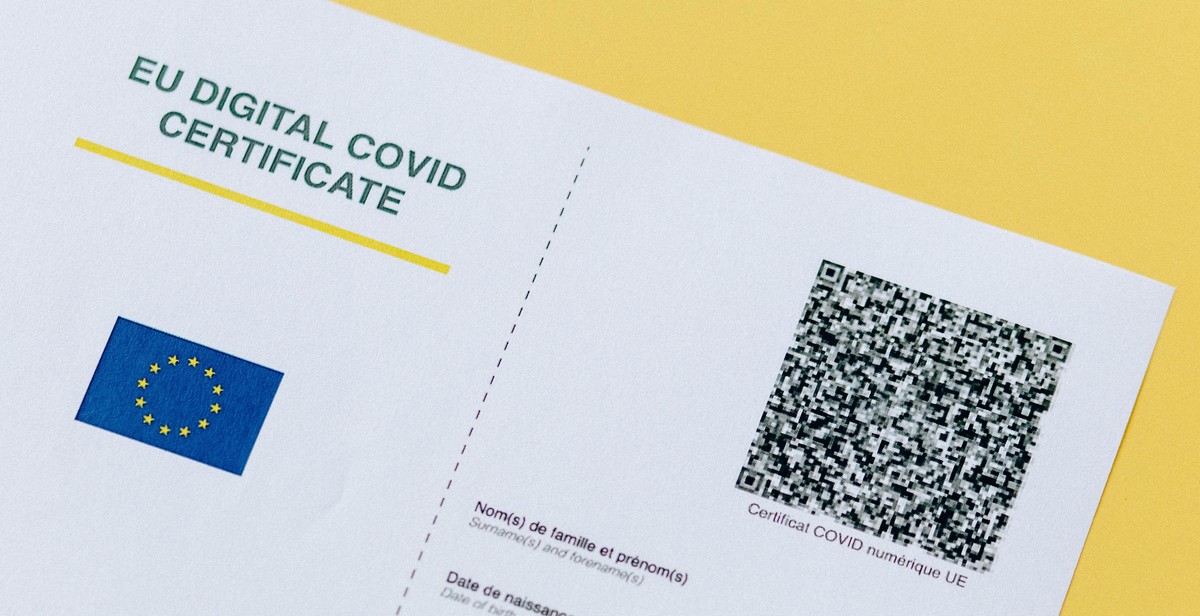How to Discuss Vaccines with Loved Ones
As a professional article writer and content creator with years of experience, I understand the importance of discussing vaccines with loved ones. The topic of vaccines can be a sensitive one, especially given the current climate of misinformation and mistrust. However, having open and honest conversations with family and friends is crucial in promoting public health and safety.
Tips for Addressing Concerns
It is important to approach these conversations with empathy and understanding. Acknowledge your loved one’s concerns and actively listen to their perspective. Provide them with reliable sources of information and address any myths or misconceptions they may have. If necessary, consult with a healthcare professional to answer any medical questions.
Sharing Information
When sharing information about vaccines, it is important to provide clear and concise explanations. Avoid using technical jargon and instead use language that is easy to understand. Use visual aids and examples to illustrate your points. Additionally, share personal experiences and stories to make the information more relatable.
Conclusion
Having conversations about vaccines with loved ones can be challenging, but it is necessary for the health and well-being of our communities. By approaching these conversations with empathy, understanding, and reliable information, we can work towards promoting vaccination and protecting public health.

Understanding Concerns: Addressing Fear of Side Effects and Debunking Myths and Misinformation
When discussing vaccines with loved ones, it is important to understand and address their concerns. Two common concerns that people may have are fear of side effects and beliefs in myths and misinformation.
Addressing Fear of Side Effects
Fear of side effects is a common concern when it comes to vaccines. It is important to acknowledge that all medical treatments, including vaccines, have potential side effects. However, it is also important to note that the vast majority of side effects from vaccines are mild and temporary, such as a sore arm or low-grade fever. Serious side effects are extremely rare.
It can be helpful to provide loved ones with information about the safety and efficacy of vaccines. The Centers for Disease Control and Prevention (CDC) regularly monitors vaccine safety and has a Vaccine Adverse Event Reporting System (VAERS) to track any adverse reactions. Reassure your loved ones that the benefits of vaccines far outweigh the risks, as they protect against serious and potentially deadly diseases.
Debunking Myths and Misinformation
Myths and misinformation about vaccines can be a major barrier to getting vaccinated. Some common myths include that vaccines can cause autism or that they are not necessary because certain diseases have been eradicated. It is important to address these myths with factual information.
The idea that vaccines cause autism has been thoroughly debunked by numerous studies. The CDC states that there is no link between vaccines and autism, and that vaccines are thoroughly tested for safety before they are approved for use.
It is also important to explain that even though certain diseases have been eradicated in some parts of the world, they still exist in other parts. Travel and migration can also bring these diseases back to areas where they were previously eradicated. Vaccines are necessary to protect against these diseases and prevent their spread.
Conclusion
Addressing concerns about vaccines can be challenging, but it is important to provide loved ones with accurate information and reassurance. By addressing fear of side effects and debunking myths and misinformation, you can help your loved ones make informed decisions about their health and the health of those around them.

Sharing Information: Presenting Facts and Statistics
When discussing vaccines with loved ones, it’s important to present accurate and up-to-date information. One of the most effective ways to do this is by presenting facts and statistics. Here are some key points to consider:
- Explain how vaccines work: Vaccines work by stimulating the immune system to recognize and fight off specific viruses or bacteria. They do not cause the disease they are designed to protect against.
- Highlight the safety of vaccines: Vaccines undergo rigorous testing and are continuously monitored for safety. Serious side effects are extremely rare.
- Discuss the benefits of vaccines: Vaccines have been instrumental in reducing the incidence of many diseases, such as polio, measles, and whooping cough.
- Address common misconceptions: Common misconceptions about vaccines include the belief that they can cause autism (which has been thoroughly debunked) or that they are not necessary because the diseases they protect against are no longer prevalent.
By presenting these facts and statistics, you can help dispel myths and misinformation about vaccines and provide your loved ones with accurate information.
Sharing Information: Using Personal Stories and Experiences
In addition to presenting facts and statistics, it can be helpful to use personal stories and experiences to help your loved ones understand the importance of vaccines. Here are some tips:
- Share your own vaccination story: If you have received vaccines yourself, share your experience with your loved ones. Explain how you felt before and after the vaccine and emphasize the importance of protecting yourself and others.
- Share stories of vaccine-preventable diseases: If you or someone you know has been affected by a vaccine-preventable disease, share that experience with your loved ones. This can help them understand the real-world consequences of not getting vaccinated.
- Highlight the importance of community immunity: Explain how getting vaccinated not only protects yourself but also helps protect those who cannot get vaccinated, such as infants, elderly individuals, and those with compromised immune systems.
By using personal stories and experiences, you can help your loved ones understand the importance of vaccines on a more emotional level. This can be especially effective for those who may be hesitant or resistant to getting vaccinated.
Table: Vaccine Safety
| Vaccine | Common Side Effects | Serious Side Effects |
|---|---|---|
| DTaP (diphtheria, tetanus, pertussis) | Pain or swelling at the injection site, fever, fussiness | Seizures (very rare) |
| MMR (measles, mumps, rubella) | Fever, rash, swollen glands | Joint pain, temporary low platelet count (very rare) |
| HPV (human papillomavirus) | Pain or swelling at the injection site, fever, headache | None reported |
Remember, when sharing information about vaccines with loved ones, it’s important to be patient, understanding, and compassionate. By presenting facts and statistics and using personal stories and experiences, you can help your loved ones make informed decisions about their health.

Active Listening and Empathy
When discussing vaccines with loved ones, it is important to approach the conversation with active listening and empathy. Active listening means giving your full attention to the person speaking and trying to understand their perspective without judgment. Empathy involves putting yourself in their shoes and recognizing their emotions and feelings.
Active listening and empathy can help create a safe and respectful space for discussing vaccines. It can also help you understand where your loved one is coming from and address their concerns in a thoughtful and compassionate way.
Active Listening Tips
- Give your full attention to the person speaking. Avoid multitasking or interrupting them.
- Use nonverbal cues such as nodding and eye contact to show that you are listening.
- Paraphrase what the person said to ensure you understand their perspective correctly.
- Avoid interrupting or correcting the person, even if you disagree with their viewpoint.
Empathy Tips
- Put yourself in their shoes and try to understand their feelings and emotions.
- Avoid dismissing their concerns or belittling their emotions.
- Recognize that everyone has a unique perspective, and it is okay to have different opinions.
- Validate their feelings and emotions, even if you do not agree with their viewpoint.
Active Listening and Empathy in Action
Here is an example of how to use active listening and empathy in a conversation about vaccines:
| Your response | Active listening and empathy response |
|---|---|
| “I don’t understand why you are against vaccines.” | “It sounds like you have some concerns about vaccines. Can you tell me more about what worries you?” |
| “Vaccines are safe and effective. You should get them.” | “I understand that you may have some doubts about vaccines. It’s okay to have questions and want more information.” |
| “You’re being irrational. Vaccines save lives.” | “I can see that this is an emotional topic for you. Let’s take a step back and talk about what’s important to you when it comes to vaccines.” |
By using active listening and empathy, you can have a more productive conversation with your loved one about vaccines. Remember to approach the conversation with an open mind and a willingness to listen and understand their perspective.

Conclusion
Discussing vaccines with loved ones can be a sensitive and challenging topic, but it’s important to have these conversations for the health and well-being of everyone involved. By following the tips outlined in this article, you can approach these discussions in a respectful and informative way.
Remember to:
- Listen to their concerns
- Provide accurate information
- Use trusted sources
- Keep the conversation respectful
- Consider the benefits and risks
Additionally, it’s important to:
- Stay up-to-date on the latest vaccine information
- Get vaccinated yourself to lead by example
- Encourage others to speak with their healthcare provider about any concerns they may have
Remember, vaccines are a vital tool in preventing the spread of diseases and protecting public health. By having open and honest conversations with our loved ones, we can help ensure that everyone is informed and empowered to make the best decisions for their health.
